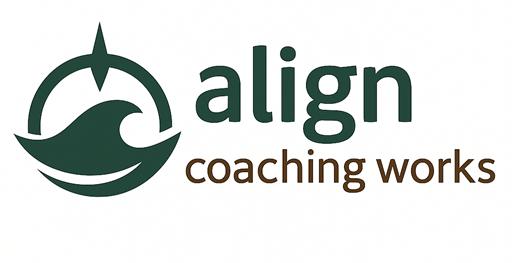Why Do Tough Conversations Feel So Hard?
Discover how your mindset shapes the outcome—and how a simple shift from Saboteur to Sage can change everything.
If you’ve ever dreaded a conversation—whether it’s with a colleague, a partner, or your boss—you’re not alone.
You want to be honest but not harsh. Clear but kind. Confident but not controlling. And often, that tightrope walk leaves you stressed, second-guessing, and wondering if you got it all wrong.
As a coach who helps professionals grow their leadership from the inside out, I see this pattern all the time. Here’s the truth: It’s not
If you’ve ever dreaded a conversation—whether it’s with a colleague, a partner, or your boss—you’re not alone.
You want to be honest but not harsh. Clear but kind. Confident but not controlling. And often, that tightrope walk leaves you stressed, second-guessing, and wondering if you got it all wrong.
As a coach who helps professionals grow their leadership from the inside out, I see this pattern all the time. Here’s the truth: It’s not the conversation that’s the problem. It’s the state you’re in when you have it.
Let’s explore what’s really going on—and how to change it.
Tough Conversations Activate Our Nervous System
They trigger three things we’re wired to avoid:
- Conflict
- Uncertainty
- Discomfort
So, it’s no surprise that we tense up, rehearse our words, or avoid them altogether. Even with the best intentions, we can show up in ways that disconnect rather than build trust.
The Real Mistake: Leading from a Reactive State
In my coaching work, I use a framework called Positive Intelligence (PQ). It teaches us to recognize the voice of our inner Saboteurs—the mental habits that drive fear, judgment, and control—and shift into our Sage self, the part of us that’s grounded, wise, and resilient.
When we enter conversations in a reactive state, our Saboteurs are often in charge. Here’s how they might show up:
- The Judge: “They never listen.” “You always mess this up.”
- The Controller: “You need to take charge of this.”
- The Avoider: “Just wait a little longer… maybe it’ll resolve itself.”
- The Pleaser: “It’s not a big deal unless you think it is?”
- The Stickler: “This has to be perfect or it’ll go wrong.”
When these voices are in control, we stop connecting. We start performing, protecting, or postponing. And the result? The very connection we crave becomes harder to reach.
The Shift: From Tension to Trust
The solution isn’t about being better with words. It’s about shifting your mindset and presence. That’s where your Sage comes in.
The Sage is the part of you that leads with curiosity, compassion, and courage. It’s the version of you who can be both honest and empathetic—even in hard moments.
Before your next tough conversation, pause and ask:
- 💡 What’s the opportunity here—for growth, connection, or clarity?
- 🤝 What does this person really need from me right now?
- 🧠 How can I be curious, instead of trying to control the outcome?
These are Sage questions. And they unlock a completely different energy.
A Simple Practice: Your Pre-Conversation Reset
Here’s a quick Positive Intelligence practice you can try today:
- Pause and Breathe – Take 10 seconds to center yourself. Close your eyes or bring full attention to a physical sensation (like the feeling of your fingertips rubbing together).
- Notice Your Inner Voice – Are you trying to prove something? Avoid something? Control something? That’s likely a Saboteur.
- Shift to Sage – Ask: What would my Sage do here?
- Lead with Presence – Speak from a place of grounded clarity, not pressure.
You’ll be amazed how even one breath, one question, or one mindset shift can change the tone—and the outcome—of a difficult conversation.
One Last Thing to Ask Yourself:
❓ Am I responding from my Saboteur… or my Sage?
That one question can help you transform tough conversations from draining to empowering—whether you’re navigating leadership at work or personal dynamics at home.
If This Resonates…
You’re not alone in this. If you’d like support becoming the kind of leader (and human) who handles hard things with more ease, clarity, and connection—I’d love to help.
Let’s talk.
I offer coaching designed to build your mental fitness and emotional resilience using the Positive Intelligence framework. I invite you to reach out for a quick discovery call to see if coaching is right for you.

